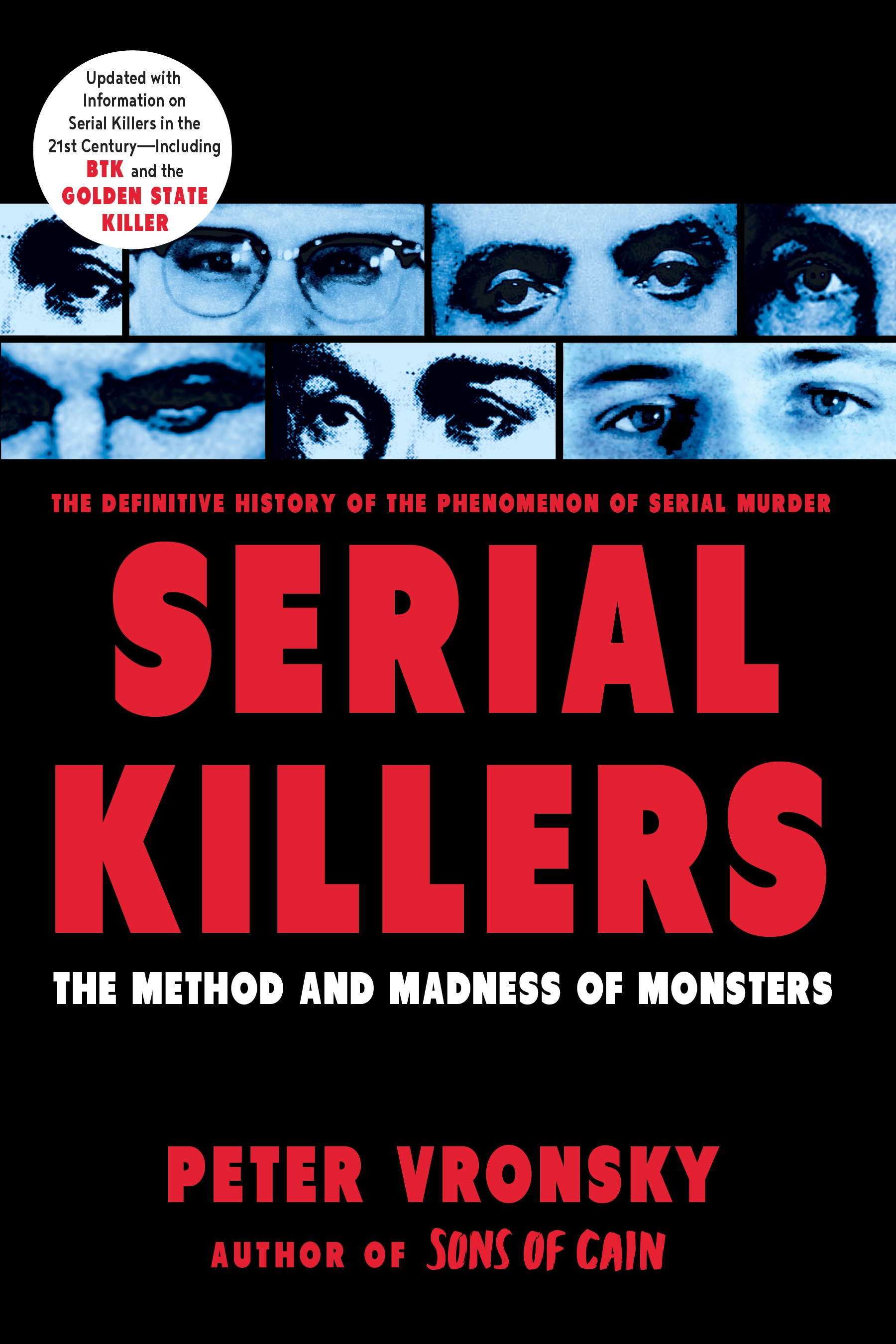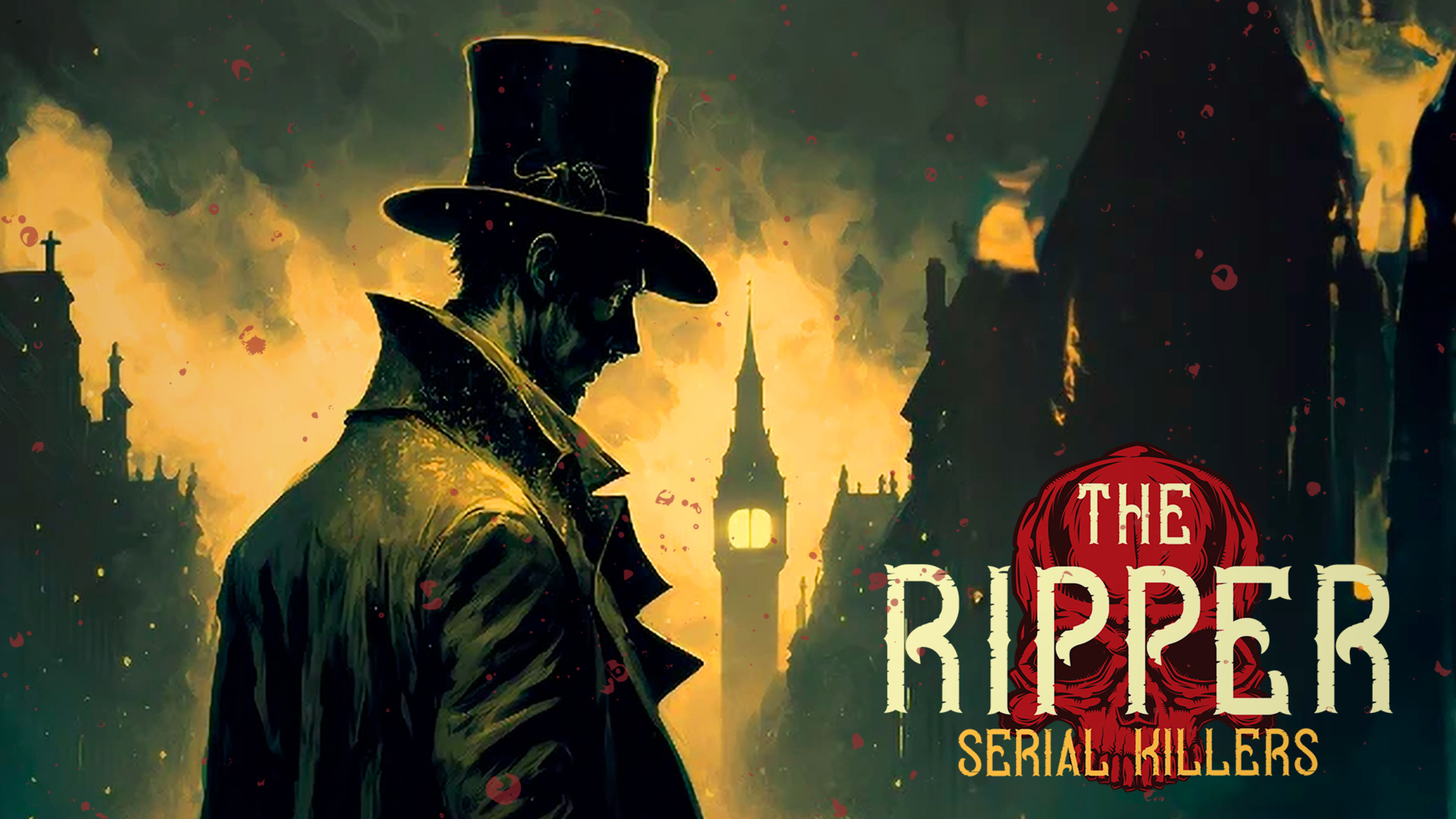Fictional Killers - The Allure Of Dark Characters
There's something about stories featuring people who commit terrible acts, especially those who do so repeatedly, that really captures our attention. It's a strange pull, that, to look into the minds of characters who bring about such awful events, and it seems we just cannot look away from them. These figures, sometimes known as fictional serial killers, have a way of staying with us, long after we finish a book or step away from a screen, apparently.
You might find yourself drawn to these narratives, maybe because they make you think about what darkness can exist within people, or perhaps they just offer a thrilling escape from everyday life. Stories that feature characters who commit multiple killings in a single incident, often called fictional mass murderers, share some common ground with the tales of those who hunt down one person after another, yet there's a distinct kind of dread that comes from the latter, you know?
From the printed page to the big screen and even your headphones, these fictional serial killers have a way of becoming truly memorable, etching themselves into the collective memory of what makes for good, unsettling entertainment. It's a bit like they have a legacy, actually, in the way they continue to make us feel a mix of dread and fascination, time and again.
- Halloween Tyra Banks
- Location Of Little House On The Prairie
- Is Home Goods Open Christmas Eve
- Harry Jowsey Francesca
- Ortega And Sons
Table of Contents
- What Makes Fictional Serial Killers So Compelling?
- How Do Fictional Serial Killers Appear in Different Stories?
- The Impact of Fictional Serial Killers on Entertainment
- Why Do We Keep Reading About Fictional Serial Killers?
- The Long Shadow of Fictional Serial Killers
What Makes Fictional Serial Killers So Compelling?
There's a particularly chilling kind of fictional serial killer that sits at the very heart of the unsettling elements within many stories, whether they are games, films, or television shows. These characters have, in many cases, shown themselves to be truly effective at creating a sense of unease, making audiences feel quite uncomfortable, you know? They are often crafted with a deep level of thought, given backgrounds that hint at their dark nature, or a way of thinking that just feels wrong, so it's almost impossible to ignore them.
The narratives built around these figures are often put together in ways that feel a bit twisted, yet also quite beautiful in their own strange way. The way they are brought to life, through the performances of actors or the words on a page, makes them truly memorable. These fictional serial killers continue to cause a sense of horror, to hold people in a state of fascination, and to surprise us with their actions, cementing their place in the long story of entertainment. It’s like they have a permanent spot in our minds, actually.
Think about the way a good story can make you feel something deep inside. When it comes to fictional serial killers, that feeling is often a mix of fear and a strange kind of curiosity. We might wonder what drives them, what makes them do the things they do, or how they manage to stay hidden for so long. This desire to understand the seemingly unexplainable is, in some respects, a big part of their appeal. It makes us want to keep turning pages or watching scenes unfold, just to get a glimpse into that darker side, to be honest.
- Not Menendez
- Where Does The Name Vincent Come From
- 4 Fa 4
- Ja Morant And Stephen Currys Teams Clash In Memphis
- Auntie Annes Mothers Day
How Do Fictional Serial Killers Appear in Different Stories?
When you consider stories that feature fictional serial killers, you'll find them popping up in all sorts of places. They are not just limited to one type of story or one kind of media. For example, many books about fictional serial killers often combine elements from detective stories, tales that explore the inner workings of the mind, and classic puzzles that need solving. This blend of styles makes for a really rich reading experience, where you're trying to figure out who did it, but also trying to understand the 'why' behind it all, basically.
I've had the chance to read a number of books featuring fictional serial killers over the last few years, and it was a bit of a surprise to me how much I really enjoyed them until I found myself completely hooked. The experience of exploring these fictional serial killers through written stories can be both exciting and, well, a little bit scary at the same time. It’s like you’re on the edge of your seat, but also feeling a chill down your spine, you know? The stories often give you a peek into some truly dark places.
The range of these stories is quite broad. You can find everything from thrilling tales that keep you guessing to stories that are a bit more over-the-top and fun, perfect for anyone who enjoys suspense, puzzles, and narratives that are a little bit twisted. They can be found in long lists of recommended reading, showing just how popular this type of character is in the world of books. So, whether you like your scares straight up or with a side of mystery, there's probably a book with a fictional serial killer that will suit your taste, apparently.
Are There Specific Kinds of Fictional Serial Killers in Books?
Yes, there are, in a way, different kinds of fictional serial killers that show up in books. Some are very much about the chase, where a detective is trying to catch someone who is leaving a trail of victims. Others are more focused on the psychological side, really getting into the head of the person committing the acts, or the people trying to stop them. For instance, the character of Hannibal Lecter may be one of the most well-known fictional serial killers ever to exist in stories, and his appearances show a very specific type of character, you know?
In a very important book, a young agent from a government agency is made to work with Hannibal Lecter to try and solve a case involving another fictional serial killer, one known as ‘Buffalo Bill.’ This setup shows how these characters can be used not just as villains, but as tools or even strange allies in the hunt for others. It’s a classic example of how the lines can get a little blurry in these kinds of stories, making them more interesting, actually.
Then you have series like Lars Kepler's Joona Linna books, where you follow the path of a fictional serial killer who is focused on a slow, cruel kind of payback in a story like "The Rabbit Hunter." The main people in these stories, detectives Linna and Bauer, have dealt with upsetting crimes before, showing that the world they live in is full of these kinds of dark figures. This really highlights the ongoing struggle against evil that is typical in many stories featuring fictional serial killers, basically.
Another series, starting with "Every Dead Thing," introduces a character named Charlie whose wife and child are killed by a mysterious person called the Traveling Man. This figure will return to fill that big part in crime stories, the role of the fictional serial killer. This shows how some characters are designed to be recurring threats, adding a continuous layer of dread to a series. It’s a way of keeping the tension high and the stakes personal for the characters involved, too it's almost.
The Impact of Fictional Serial Killers on Entertainment
Fictional serial killers have left a big mark on entertainment, showing up in many forms and making a strong impression. From the scary Asami Yamazaki to the very famous Hannibal Lecter, these are some of the most memorable and chilling fictional serial killers you can find in movies. The good thing is, of course, that they are all made up. Their impact comes from how well they are crafted to scare us, to make us think, and to sometimes even make us feel a strange sense of empathy for them, which is a very unsettling feeling, you know?
If you enjoy thrillers or crime dramas, chances are you have seen some of these fictional serial killers on your screen. They are everywhere, from classic films that have been around for ages to brand new shows that just came out. These characters are often the central point of the story, driving the plot forward and creating all the tension. They are, in a way, the engine of the narrative, pushing everything along with their dark actions, apparently.
We can talk about some of the best fictional serial killers from movies and shows, like those that really stick in your mind. These are the ones that have become almost household names, even though they are not real. Their presence in our entertainment reflects a fascination with the darker aspects of human nature, and the stories built around them allow us to explore those ideas from a safe distance, which is pretty interesting, if you think about it, basically.
Exploring Notable Fictional Serial Killers in Media
When we look at the most famous fictional serial killers in media, Hannibal Lecter often comes up first. He is a character that has appeared in books, movies, and television, always bringing that same blend of intelligence and terror. His presence alone can make a scene feel incredibly tense. But he is just one example, as a matter of fact.
There are many others who have made a lasting impression. Think about the ways these characters are portrayed; sometimes they are very obvious in their actions, and sometimes they are hidden in plain sight, making their eventual discovery even more shocking. The best of these fictional serial killers are not just monsters; they often have a certain logic to their madness, or a background that, while not excusing their deeds, helps us understand how they came to be, you know?
If you're really enjoying the new miniseries on Netflix that features Andrew Scott, you might find yourself wanting to read the books that inspired it. These kinds of connections between different forms of media show how a compelling fictional serial killer can jump from one platform to another, keeping their appeal. It's a testament to the power of a well-written character that they can be reinterpreted and still resonate with audiences across different generations, so.
The Role of Fictional Serial Killers in Podcasts
The influence of fictional serial killers, and the broader topic of such crimes, extends even to the world of audio stories, particularly podcasts. "Serial" is a very well-known podcast that comes from the same people who make "This American Life," and it is hosted by Sarah Koenig. While "Serial" itself tells a true story over the course of a season, its very title and the way it delves into crime and investigation connect directly to the public's interest in the kind of stories that feature fictional serial killers, in a way.
The podcast "Serial" gained a lot of attention for its deep look into a single case, examining all the small details: the high school setting, the changing statements given to the police, the unfair ideas people held, the shaky alibis, the tiny bits of physical proof. All of these elements lead back to some very basic questions about what really happened. This kind of detailed investigation into a crime, even if it's a real one, mirrors the way many fictional stories about fictional serial killers are structured, where every clue matters, you know?
"Serial" has been recognized with every major award for its work, showing just how much impact a well-told story about crime can have. You can listen to "Serial" in many different places, like right on their website, or through popular apps like Apple Podcasts, Google Podcasts, and Pandora. You can also find it on Stitcher or Radiopublic. The fact that this type of content is so widely available and highly praised shows a continued fascination with the mechanics of crime and the people who commit them, even when the topic is a real one, it's almost.
The podcast has even gone back to court, not for one extraordinary instance, but because it wanted to look at the entire system of criminal justice. To do that, the creators figured they would need to take a very broad approach. This kind of deep, systemic look at crime and justice, while different from a fictional narrative, still feeds into the general interest in the subject matter that also makes fictional serial killers so compelling. It's all part of the same big picture, basically, about trying to understand dark events and how they are dealt with by society.
Why Do We Keep Reading About Fictional Serial Killers?
We continue to read about fictional serial killers to this day with a kind of morbid curiosity, that's what it is. It's not about celebrating the acts themselves, but rather about trying to understand the extremes of human behavior, or perhaps to simply experience a thrill from a safe distance. These stories often serve as a way to explore the darker parts of our collective imagination without having to face real danger, which is a pretty common reason people enjoy scary stories, you know?
The appeal is also, in part, about the puzzle. Books about fictional serial killers are often mysteries at their core, inviting the reader to try and piece together clues alongside the characters. It's a mental exercise, a challenge to figure out the "who" and the "why" before the story reveals it. This active engagement makes the experience much more immersive than simply watching something unfold, apparently.
Beyond the puzzle, there's the psychological aspect. These stories often delve into the minds of the people who commit these acts, or the people who are trying to catch them. This can be fascinating, offering a glimpse into thought processes that are very different from our own. It's a way of exploring the boundaries of sanity and morality, and seeing how characters react when faced with true evil. So, in some respects, it's about understanding the human condition, even its most unsettling parts, to be honest.
The Long Shadow of Fictional Serial Killers
The lasting impact of fictional serial killers is clear when you see how many books and stories are dedicated to them. From lists of the "20 best books about fictional serial killers" to "30 of the best serial killer books of all time," there is a clear demand for these narratives. These lists often include a wide variety of stories, from those that are deeply unsettling to those that are more about the chase and the puzzle, showing the breadth of the genre, basically.
It's interesting to note that even real-life figures like Jack the Ripper, the Zodiac Killer, Dennis ‘Bind, Torture, Kill’ Rader, Ted Bundy, and Fred West have their stories told in books, sometimes blurring the lines between fact and fiction in the public imagination. While these are real people, the way their stories are presented often takes on elements of fictional storytelling, which speaks to our ongoing interest in the subject. This connection to real events gives the fictional accounts an added layer of gravity, you know?
The presence of fictional serial killers in our culture is a reflection of a deeply ingrained human curiosity about the dark side of existence. They allow us to confront our fears, to ponder the nature of evil, and to appreciate the bravery of those who stand against it, all from a place of safety. Their stories, whether told in a book, on a screen, or through a podcast, continue to captivate and challenge us, leaving a lasting impression on the way we think about crime and the human mind, very truly.
This article has explored the compelling presence of fictional serial killers across various forms of media, from books that blend detective work with psychological thrills to memorable portrayals in films and television. We've considered why these characters hold such a strong appeal, the different ways they are brought to life in stories, and their significant impact on the entertainment landscape, including their role in popular podcasts. The discussion touched upon specific examples like Hannibal Lecter and the ways different book series approach these dark figures, ultimately looking at why our fascination with fictional serial killers continues to endure.



Detail Author:
- Name : Rod Nader
- Username : jennie04
- Email : wilfredo.herzog@gutmann.com
- Birthdate : 1989-09-08
- Address : 40812 Nora Course Suite 723 Elouisebury, IA 72913-2328
- Phone : 305-593-3094
- Company : Skiles, Mann and Leuschke
- Job : Bailiff
- Bio : Quia aut voluptatem praesentium dignissimos deleniti. Velit repellat nulla sapiente qui voluptate dolorum. Doloribus omnis dolorem est aut eos. Qui quia veniam placeat sunt possimus expedita.
Socials
linkedin:
- url : https://linkedin.com/in/funk1996
- username : funk1996
- bio : Aut quis quia autem quia dicta.
- followers : 608
- following : 1529
instagram:
- url : https://instagram.com/kfunk
- username : kfunk
- bio : Quam asperiores necessitatibus laborum eaque consequatur. Rerum eos eum nostrum fuga error.
- followers : 1653
- following : 800
facebook:
- url : https://facebook.com/funkk
- username : funkk
- bio : Nobis molestias aut eveniet placeat aut.
- followers : 3354
- following : 2676
tiktok:
- url : https://tiktok.com/@kevonfunk
- username : kevonfunk
- bio : Quis quas eos est aperiam.
- followers : 6788
- following : 689
twitter:
- url : https://twitter.com/kevon_official
- username : kevon_official
- bio : Quia qui laboriosam qui. Eligendi tempora ipsum est. Rerum neque et architecto rem vel velit sapiente.
- followers : 4864
- following : 1214